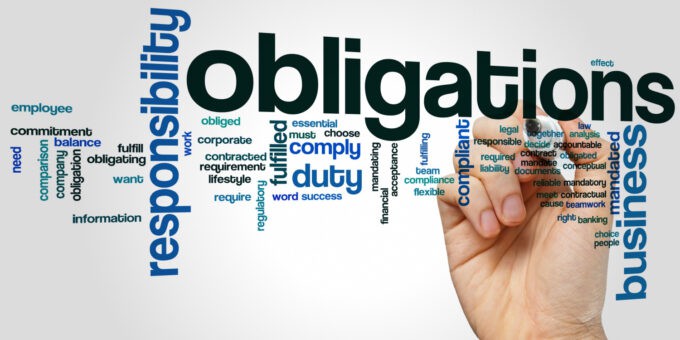After setting up a company in the UK, you are legally required to record and report certain information throughout the life of the business. Some obligations apply to all registered companies, while others depend on circumstances.
In this post, we explain the ongoing obligations you need to be aware of when running a limited company. These include statutory filing and reporting requirements, record-keeping duties, and tax liabilities.
Key takeaways
- To ensure compliance after incorporation, directors of registered companies have a legal duty to fulfil various obligations for Companies House and HMRC.
- Notable requirements include filing an annual confirmation statement, preparing annual accounts and a Company Tax Return, paying Corporation Tax, keeping company records and registers, and reporting changes.
- Depending on circumstances, some companies may also have VAT, PAYE, and ICO registration obligations to fulfil.
1. Annual confirmation statement
All registered companies, whether active or dormant, must prepare an annual confirmation statement for Companies House at least once every 12 months. The filing deadline is either:
- 1 year and 2 weeks from the date of incorporation
- 1 year and 2 weeks from the date of the last confirmation statement
The purpose of the confirmation statement is to verify that the information Companies House holds about a company is correct and up to date, including the:
- Registered office address
- Details of every director and company secretary
- Details of people with significant control (PSCs)
- Registered email address
- Nature of business activities (SIC codes) – i.e. what the company does
- Details of shareholders
- Details of issued shares
- Location of statutory company registers
Furthermore, every confirmation statement must include a formal statement confirming that the company’s intended future activities are lawful. This is a new requirement introduced by the Economic Crime and Corporate Transparency Act 2023.
Directors must check that the information held by Companies House is correct before filing a confirmation statement. You can do this by looking up your company on the public register.
You can use the statement to report changes to the following:
- SIC code(s)
- Statement of capital (details of shares)
- Trading status of shares
- Exemption from keeping a PSC register
- Shareholder information
If you need to update any other details, you must notify Companies House separately, either before or at the same time as filing the confirmation statement.
2. Annual accounts
All companies must prepare annual accounts for Companies House, even if they are dormant. The purpose of annual accounts is to show the company’s financial performance over the previous financial year.
Companies can file different types of annual accounts with Companies House depending on their size and trading status:
- Large companies must submit full statutory accounts.
- Medium-sized companies must submit medium-sized company accounts.
- Small companies can file abridged accounts that are simpler and contain less information than accounts required by medium and large companies.
- Micro-entities (very small companies) can submit micro-entity accounts, which are even more basic than small companies are required to file and only include a balance sheet.
- Dormant companies can file dormant company accounts, which contain only a basic balance sheet showing the company’s share capital and the paid-up status of that share capital.
For a private limited company, the deadline for filing annual accounts with Companies House is:
- 21 months after incorporation (first accounts), then
- 9 months after the end of the company’s financial year
Active companies must also include full annual accounts when they file a Company Tax Return with HMRC (more on this below).
3. Corporation tax
Companies are liable to pay Corporation Tax on their taxable profit, which includes the money they make from trading, investments, and selling assets.
You must add Corporation Tax services to your company’s business tax account when you start doing business – e.g. buying and selling, advertising, renting property, and employing people.
You will work out your company’s Corporation Tax liability when you prepare your Company Tax Return. The deadline for paying your Corporation Tax bill is 9 months and one day after the end of the company’s Corporation Tax accounting period.
4. Company Tax Return
Unless your company is dormant, you must file a Company Tax Return (form CT600) with HMRC every year. The purpose of the tax return is to report your company’s financial activities, calculate the amount of Corporation Tax it owes, and provide necessary information for tax assessment.
A Company Tax Return must include full statutory accounts. The filing deadline is 12 months after the end of the company’s accounting period for Corporation Tax.
5. Company records and registers
Registered companies must maintain a number of business records and statutory company registers. Directors are responsible for ensuring that they are accurate, up to date, and (where applicable) made available for public inspection.
The company records and registers you must keep include the following:
- Register of members
- Register of directors
- Register of directors’ usual residential addresses
- Register of secretaries
- Register of People with Significant Control (PSC register)
- Directors’ service contracts
- Register of charges and instruments creating charges (i.e. mortgages, secured loans)
- Minutes of general meetings (or the members) and board meetings (of the directors)
- Copies of decisions and company resolutions
- Record of directors’ indemnities (security against liability claims or legal costs)
- Record of debenture holders
- Records of the sale or transfer of company shares
Companies must store their records and registers at their registered office address or at a single alternative inspection location (SAIL address).
Additionally, companies must keep accounting and financial records for at least 6 years from the end of the financial year they relate to. These include records of assets, debts, money spent and received, and all goods and services bought and sold.
6. VAT
Businesses with a taxable turnover of at least £90,000 (the ‘VAT threshold’) in any rolling 12-month period must register for VAT and send a quarterly VAT Return to HMRC. Businesses with a turnover below the threshold can voluntarily register for VAT.
- VAT registration – the pros and cons
- How do I pay myself from a limited company?
- UK tax year dates and deadlines 2025-26
A VAT Return tells HMRC how much VAT your company has charged on sales and how much VAT it has paid to other businesses. The difference between the two is usually the amount the company must pay HMRC.
Most businesses submit a VAT Return every 3 months. The deadline for sending a return online and paying any VAT due is 1 month and 7 days after the end of each quarterly VAT accounting period.
7. Pay As You Earn (PAYE)
If you employ anyone or pay yourself a director’s salary, you must register as an employer with HMRC and enrol for Pay As You Earn (PAYE). The PAYE system facilitates the collection of Income Tax, National Insurance contributions, and various other deductions from employment.
Once registered, you’ll need to operate PAYE as part of your company’s payroll, make deductions from employees’ wages, send reports to HMRC, and pay your PAYE bill every month or quarter.
8. Self Assessment
As a company director or shareholder, you may need to register for Self Assessment with HMRC to report and pay tax on any personal income not processed through PAYE, such as expenses, a director’s loan, or dividends from shares.
You can use HMRC’s online tool to check if you need to send a Self Assessment tax return.
The registration deadline is 5 October after the end of the relevant tax year, and the deadline for filing an online tax return is 31 January of the following year.
For example, if you need to report personal income for the tax year ending 5 April 2026, you must register by 5 October 2026 and file a Self Assessment tax return and pay any tax due by 31 January 2027.
9. Reporting changes to Companies House and HMRC
Directors have a legal duty to tell Companies House about changes to the following company details:
- Articles of association
- Registered office address
- Registered email address
- Directors or company secretaries
- Information about PSCs
- Shareholder details
- Issued shares
- Accounting reference date (ARD)
- The address where you keep your company records, and which records you store there
Additionally, you must inform HMRC if you change your company’s contact details or appoint an accountant or tax advisor.
10. ICO registration
If your limited company processes personal information about customers, clients, employees, volunteers, suppliers, or anyone else you deal with, you may be required to register with the Information Commissioner’s Office (ICO) and pay a fee.
You can complete the data protection fee self assessment on the ICO website to find out whether you need to register and how to comply with your other data protection obligations.
If you do not process personal information, you need to tell the ICO so they know you are exempt and don’t need to pay the fee.
Thanks for reading
We hope this post has helped clarify the key ongoing obligations of registered companies in the UK, which are in addition to the general rules and regulations your company is required to adhere to (including, but not limited to, health and safety, employment, and anti-discrimination legislation).
Navigating your responsibilities as a company owner can be complex, so you may benefit from seeking professional advice or assistance.
At Rapid Formations, we offer a Full Company Secretary Service to help directors fulfil their legal obligations, including filing confirmation statements, maintaining company registers, and reporting changes to Companies House.
Please comment below if you have any questions about this post. You can also contact our London-based team if you’d like to speak to us about our company formation or corporate services.
















Join The Discussion